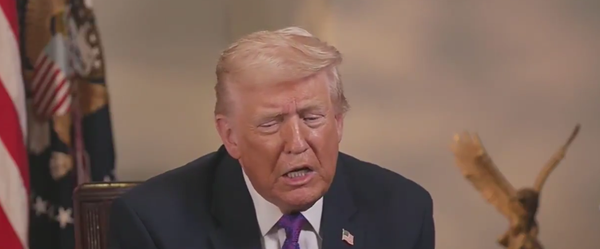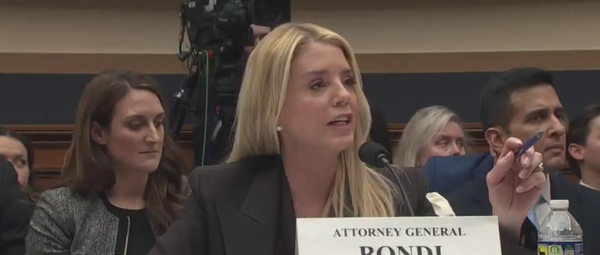Farm-State Senators Are Vulnerable
"New markets” for entrepreneurial Democrats.

Editor’s note
If you like what you see here, consider giving the Editorial Board as a gift to a friend or family member who needs a dose of politics in plain English for normal people. Every business day, the Editorial Board goes straight to your email inbox before 2 p.m. eastern. I encourage gift subscriptions especially to people whose politics you dislike! Click on the red buttonbelow ↓ to give the Editorial Board as a gift. Subscribe for a year or just a month! —JS
Catherine Rampell is right. The president’s great weakness among fellow Republicans is now his disastrous trade war. But the Post columnist is also wrong. It’s not the Democratic presidential candidates who should exploit Donald Trump’s trade failures. It’s Democratic Senate candidates who should focus on them with laser-like precision. We tend to overemphasize the American presidency. This is another case in point.
“Markets crashing, farmers suffering, allies seething, manufacturing workers fretting about their job security,” Rampell, whom I adore, wrote Monday. “All this should be great ammunition for Trump’s rivals. Why isn’t it being used? … Rather than rethinking their protectionist instincts … some Democrats have doubled down.”
Meh. These are presidential candidates. They must appeal to a broad section of the country while holding the party’s base. Free trade has always been a divisive issue among partisans, because it often means winners and losers. Sometimes winners are Democrats. Sometimes losers are Democrats. Parties are paradoxical beasts.
Democratic candidates need only make it known that they are the best friend farmers in big red states will ever have in the Senate.
Moreover, tariffs are not inherently bad, however much this president has done to discredit them. Tariffs could rightly be used, one could argue, to protect new and developing industries of social, political and national importance. That’s what we did with the railroads, for instance. A government has a stake in shielding such industries from “ruinous competition” from abroad. Once they take off, tariffs can be lifted in order to re-engage with international markets. To do that, though, we’d need some kind of industrial policy the GOP has resisted. That is, until Trump came along.
To the extent that this president has enacted a de facto national policy, it’s one designed to protect all the wrong things. We don’t need levies on imported steel and aluminum, for instance, because domestic manufacturers have been dying since Trump’s politically formative years in the 1980s. And they have been dying due to automation not free trade. (Trump says steel and aluminum tariffs are protecting American jobs. They aren’t. They’re giving a lift to mills already on life support.) If the president’s tariffs were on, say, bioscience or some kind of cutting-edge century-defining technology, they might be justified for the stake the public has in them.
Until Democratic presidential candidates are willing to talk about national industrial policy, or at least point out that Trump’s tariffs are a de facto policy, it doesn’t much matter that they are taking, in essence, a rather traditional party line. Candidates for the Senate, however, need not bother with all that hair-splitting. When it comes to the trade war’s impact on big red agricultural states, Democratic candidates need only make it known that they are the best friend farmers will ever have in the Senate.
As the Republican Party moves in the direction of wrong-headed protectionism, now is good time for Democratic Senate candidates to emerge in big red states who are unvarnished in favoring open borders and free trade. (The president’s crack down on immigrants is spawning a labor shortage. His spat with China has the potential to ruin overseas markets for good.) This isn’t as strange as it may sound. The Republicans used to be the party of business. Now it’s the party of “cultural issues.” It’s only natural for Democrats in red states to pick up where a former pro-business GOP left off.
Anyway, farmers aren’t dumb. The president can hoodwink Fox viewers into believing tariff revenue will be transferred to farmers (that’s the kind of redistribution Trump described this morning on Twitter). But he can’t fool farmers into thinking the same. Farmers know that bailout money isn’t coming from China. It’s coming from the US Treasury. And they know it probably won’t be enough to cover future losses incurred after Chinese buyers find supply chains that have nothing to do with US sellers.
(By the way, I risk treating tariffs on steel and Chinese goods too separately. The trade war hurt farmers, per Businessweek, “but so have Canada’s and Mexico’s retaliation against Trump’s steel tariffs. That’s the big reason Chuck Grassley ... has said duties on Canadian and Mexican steel will have to be lifted before Congress ratifies the United States-Mexico-Canada Agreement, Trump’s replacement for Nafta.”)
As I said, Rampell is right and wrong. She’s right about the trade war arming Democratic candidates, but those should be for the Senate, not the White House. The president’s trade war is opening “new markets” just waiting to be capitalized on.
—John Stoehr

Everything You Wanted to Know about Impeachment, But Were Afraid to Ask
That’s the same of a program I’m hosting tonight here in New Haven. My guest will be Bill Scher, contributing editor for POLITICO Magazine and RealClearPolitics.com.
We’re going to fight (mostly civilly) about the possibilities, prospects, and politics of impeachment. We’ll probably talk about some of the Dem candidates, too. —JS
Please join us!
WHAT: “Politics in Plain English.”
WHEN: Tuesday, May 14, 7:30 p.m.
WHERE: The Institute Library, 847 Chapel St., New Haven.
RSVP: Click here.




